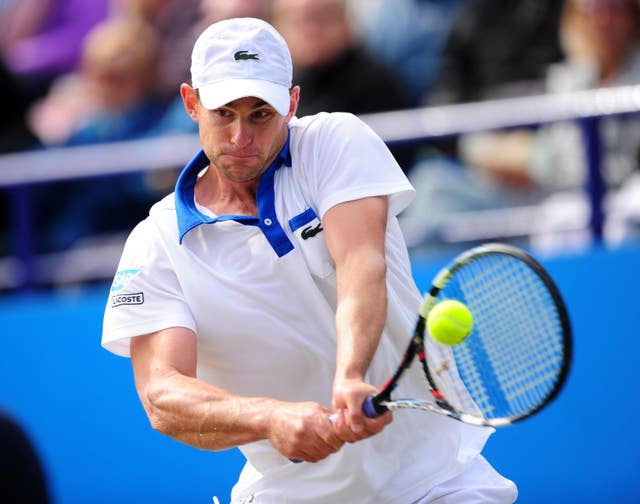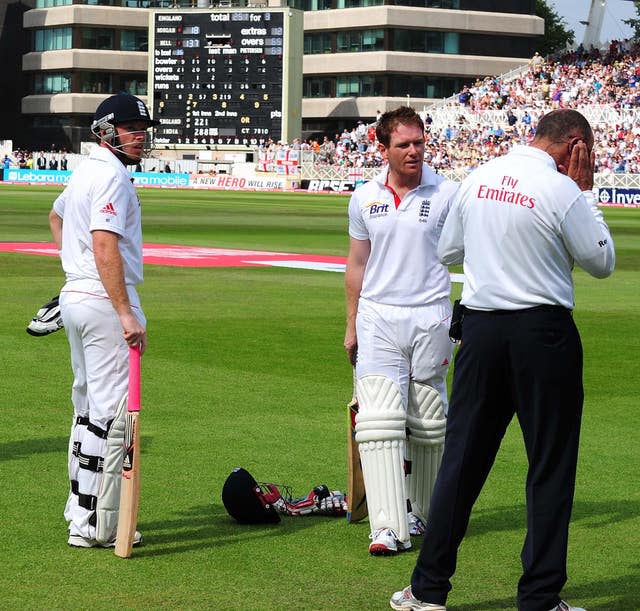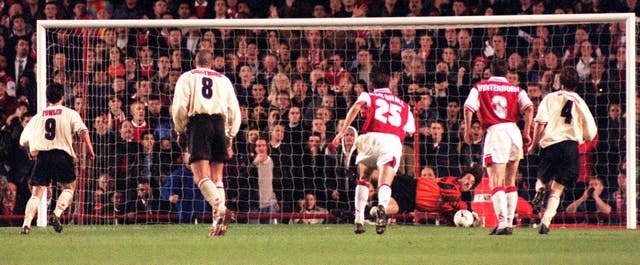Ronnie O’Sullivan appears to join the list of great sportsmanship acts
Ronnie O’Sullivan was praised for his apparent sportsmanship during his quarter-final match with Stuart Bingham at the World Snooker Championship in Sheffield.
The seven-time world champion opted to end his break by playing a safety shot, rather than attempt to pot a red, as he did not believe the black was sitting on its spot properly and appeared unwilling to gain an unfair advantage.
Here, the PA news agency picks out five previous examples of fair play in professional sport.
Paolo Di Canio
#ONTHISDAY Paolo Di Canio caught the ball while @Everton goalkeeper Paul Gerrard lie injured in 2000 #WHUFC pic.twitter.com/byEZrcjSFr
— West Ham United (@WestHam) December 16, 2015
Controversial Italian Di Canio endeared himself to the British public while playing for West Ham in a Premier League clash at Everton in December 2000.
Home goalkeeper Paul Gerrard was lying on the ground injured when an unmarked Di Canio was picked out in the area by team-mate Trevor Sinclair.
But, instead of putting the ball into an empty net to give the Hammers a 2-1 lead, the forward opted to catch it and allow Gerrard to receive treatment. The incident earned Di Canio a FIFA Fair Play award.
Andy Roddick

Number one seed Roddick was a set, 5-3 and three match points to the good with a place in the quarter-finals of the 2005 Rome Masters beckoning when he handed opponent Fernando Verdasco a reprieve.
A line judge ruled the Spaniard had served a double fault but the American insisted the second serve was in and therefore an ace.
Verdasco saved two further match points, won the game and then claimed the set on a tie-break before going on to complete a 6-7 7-6 6-4 victory.
Alistair Brownlee
The 2016 WTS season ends in a dramatic fashion. What. A. Year. #WTS2016 pic.twitter.com/nvqNrrI13D
— World Triathlon (@worldtriathlon) September 19, 2016
Alistair Brownlee came to the aid of exhausted younger brother Jonny during a dramatic conclusion to the World Triathlon Series in Mexico in September 2016.
Jonny needed to win the race and hope Spaniard Mario Mola finished no higher than fourth. That looked set to happen until searing heat took its toll.
With Jonny starting to wobble, Alistair – third at the time – put his arm around him and all but carried him across the finish line. South African Henri Schoeman won the race, with Mola winning the title.
MS Dhoni

During England’s second Test against India at Trent Bridge in July 2011, Ian Bell was run out on 137 having left the crease before the ball was dead.
Bell was under the impression the ball had reached the boundary but, following an appeal by India, it was determined he was out.
England captain Andrew Strauss and coach Andy Flower visited India’s dressing room during the tea break and asked MS Dhoni, India’s skipper, if the decision could be overturned. Dhoni put it to the rest of his team and they agreed Bell could resume.
Robbie Fowler

In March 1997, Fowler was awarded a penalty at Highbury after being brought down by Arsenal goalkeeper David Seaman.
The Liverpool striker urged referee Gerald Ashby to change his mind as he had tripped and fallen over.
Fowler’s spot-kick was saved by Seaman but Jason McAteer was alert to slot in the rebound and put the Reds 2-0 up and on course for a 2-1 win.
Speaking about the incident in 2015, Fowler, who received a fair play award, claimed he had not missed on purpose.
